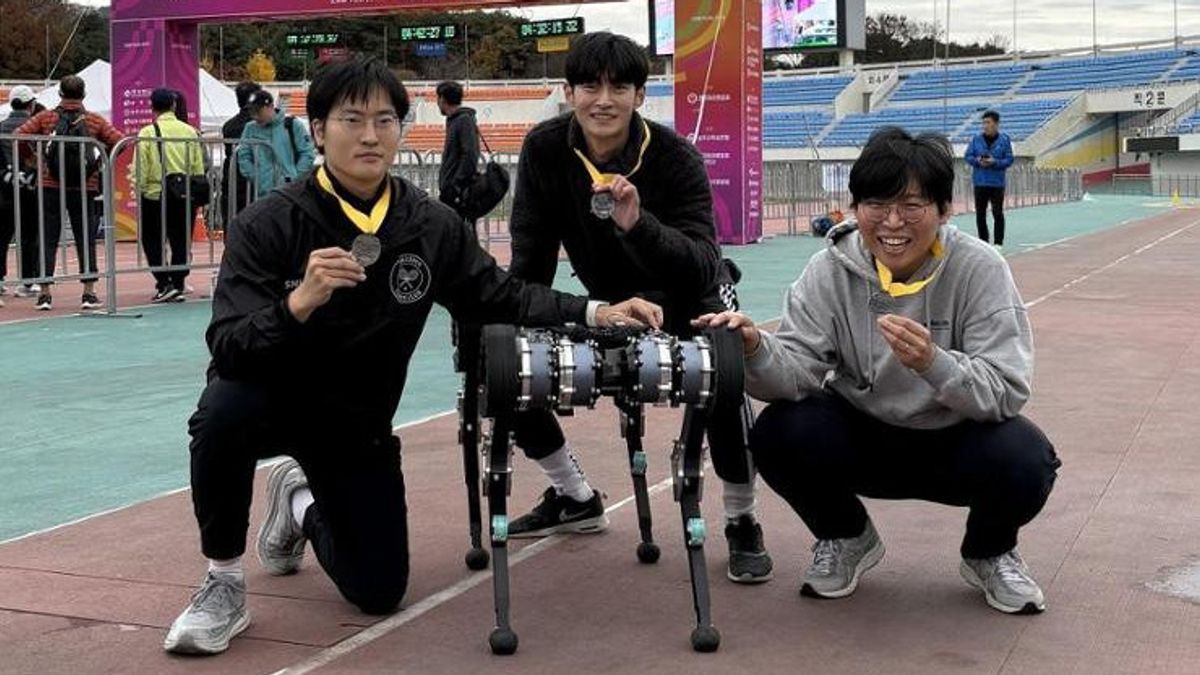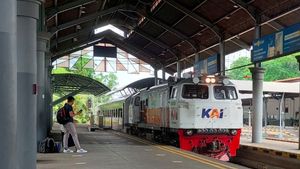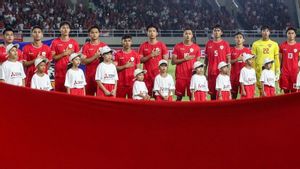Raibo 2, developed by a research team from the Korea Advanced Institute of Science & Technology (KAIST), made history by becoming the world's first four-legged robot to complete a full marathon, showing off its control technology and resilience.
The university said Raibo 2 participated in the 22nd Maraton Sangju in North Gyeongsang Province in the middle of last month, completing a 42,195-kilometer track in four hours, 19 minutes, and 52 seconds, with one battery charging.
The track covers two 30-meter-high hills at 14 km and 28 km, making it a challenging route for four-legged runners and robots due to unexpected hurdles.
The team led by professor Hwangbo Je-min and doctoral student Leeong-in, used advanced learning algorithms for Raibo 2, allowing it to train its walking mechanism at Raisim, an environmental simulation designed by Hwangbo to mimic various terrains such as slopes, stairs, and ice lines.
The four-legged robot shows excellent mobility in challenging terrain, expanding its use in areas such as surveillance and reconnaissance.
However, compared to wheeled robots, this robot has a shorter range and operating time due to energy demands to support the weight and loss of energy from soil contacts that are disconnected during the running, according to the team.
The team noted that increasing energy efficiency by reducing energy consumption per distance is the key to a longer range of operation.
Raibo 2 uses an advanced connection mechanism to recharge as it descends, and partially offset the energy used while climbing.
BACA JUGA:
The team said Raion Robotics, the company founded by Hwangbo, took over production control and played an important role in the project, allowing the team to independently engineer all aspects of the project, including mechanical design, electrical systems, software, and artificial intelligence.
"With this marathon project, we show Raibo 2 has a fairly stable walking capability to perform services such as shipping and patrols in urban environments," Lee explained.
"Our future research will focus on integrating autonomous driving features into RAIBO, which aim to achieve the best running performance in the world even in mountainous and catastrophic environments," he added.
The English, Chinese, Japanese, Arabic, and French versions are automatically generated by the AI. So there may still be inaccuracies in translating, please always see Indonesian as our main language. (system supported by DigitalSiber.id)


















